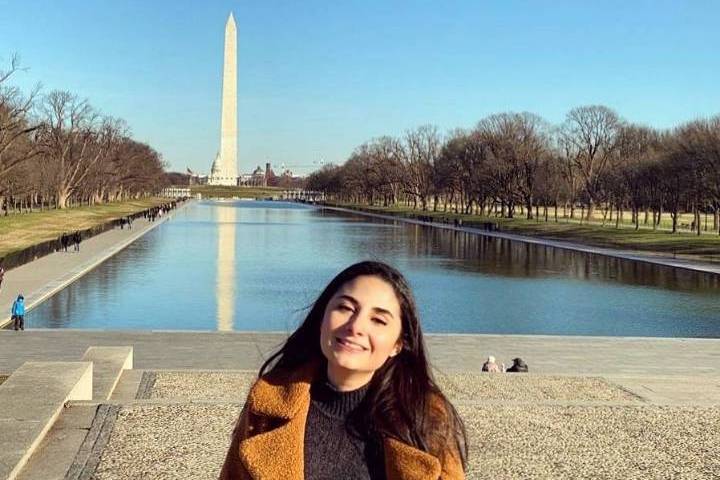Social Work Student Mimi Termos Tells Her Story of COVID-19 Recovery
05/22/2020
A little over five weeks ago, everything changed for Mimi Termos.
The COVID-19 pandemic had just started to affect the everyday lives of those in the United States. Stay-at-home orders, essential business restrictions, and social distancing were beginning to become the norm.

Termos, a doctoral student in the College for Public Health and Social Justice, was trying to take necessary precautions by limiting her social interactions and only taking necessary trips to the grocery store.
But, by March 21, the bad headaches began.
"Honestly, I was in denial,” she said. “I was like ‘No way I have it. Where would I catch it from?’”
Her symptoms soon included shortness of breath to the point she felt like she couldn’t inhale.
She called 911 and was brought to a St. Louis hospital where she was diagnosed with COVID-19 based on her symptoms.
“What we knew at the time was if it hit someone like myself, it would be something similar to the flu, it would be very mild,” she said. “But that’s not what happened.”
After returning home from the hospital, the symptoms increased to the point that she was struggling to move. For her, the body aches felt like her bones, themselves, were aching.
With the physical pain came an increase in her anxiety as she thought about every possible scenario that could result from her diagnosis. That’s when she decided to use the research background she developed from pursuing a bachelor's degree in nutrition and dietetics and a master's degree in public health to take control of her situation.
“I started researching what worked for people who overcame SARS,” she said. “I used my abilities to research what would help.”
Termos still suffered for five weeks with the virus, noting that it arrived in waves - increasing one day and decreasing the next, only to hit again a few days later.
“It’s like this virus is playing mind games on you,” she said. “It’s going to start to make you feel better and then it’s going to kick in and get worse again. It feels like this virus just won’t let you go.”
While Termos lived alone in an off-campus apartment during her struggle with the disease, she found support in the SLU community, including faculty in the College for Public Health and Social Justice.
It was very reassuring knowing they were super supportive and wanting me to put my health first. I honestly couldn’t have done it without words of encouragement from them."
Mimi Termos
Her faculty mentor, Vithya Murugan, Ph.D., has been impressed by Termos’ handling of a difficult situation.
“Mimi is resilient and industrious and has been on top of her health and her studies,” she said. “In fact, while battling COVID-19, she has finished her spring semester course work and co-authored two manuscripts that are currently under review.”
She has since joined a Coronavirus research task force which includes more than 100 researchers and scientists across the world studying the disease.
As she pursues her Ph.D. in Social Work, Termos hopes to incorporate some of her experience with the disease into her research which focuses on reproductive health and women’s autonomy.
“I am currently really interested in studying the health impacts that this pandemic has had on women around the world,” she said. “A lot of recent reports from various countries, specifically those with lockdowns, have indicated that they are currently witnessing a surge in domestic violence and intimate partner violence.”
Termos documented her journey on Twitter, and continues to tell her story now to try to help others while encouraging them to stay home and stay safe.
About the College for Public Health and Social Justice
The Saint Louis University College for Public Health and Social Justice is the only academic unit of its kind, studying social, environmental and physical influences that together determine the health and well-being of people and communities. It also is the only accredited school or college of public health among nearly 250 Catholic institutions of higher education in the United States.
Guided by a mission of social justice and focus on finding innovative and collaborative solutions for complex health problems, the College offers nationally recognized programs in public health, social work, health administration, urban planning, applied behavior analysis, criminology and criminal justice, and outcomes research and data science.